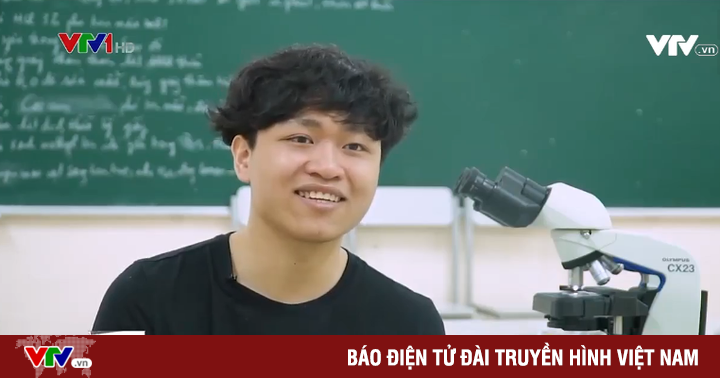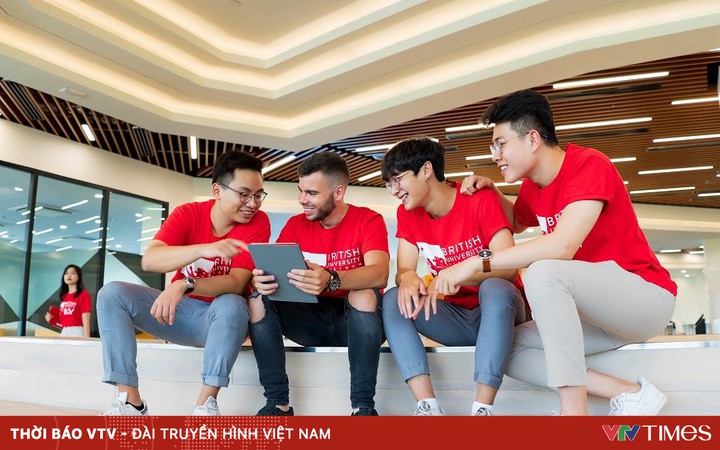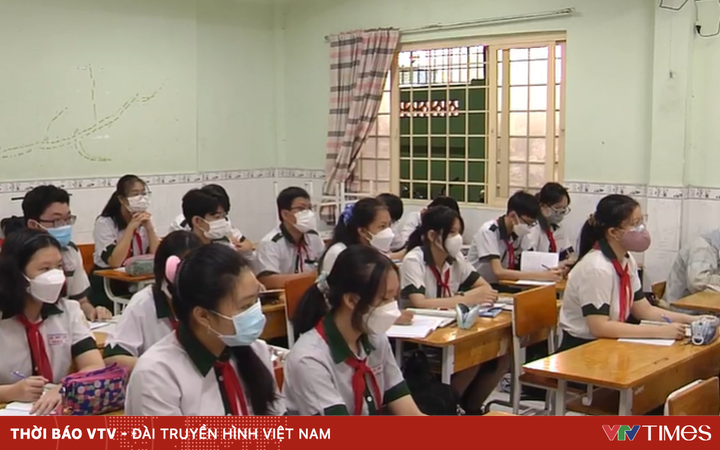Having won a Fulbright scholarship in 2021, Thuy Dung believes that candidates need to give specific and accurate answers and emphasize their leadership qualities.
Vo Ngoc Thuy Dung, 27 years old, is currently a project coordinator, content developer for digital competency development courses of a company in Ho Chi Minh City. She founded many educational projects, was a delegate in international conferences such as YouthLead 2015, Global Start-up Youth ASEAN 2014.
In 2021, Thuy Dung receives a full scholarship from the US Government (Fulbright), the program lasts from 2022-2023; At the same time, he was invited by four American universities, majoring in Pedagogical Design. From her experience, she shares what helps candidates pass the Fulbright interview.
For me, the journey to conquer the scholarship selection committee is like convincing investors to contribute capital to my project. In this article, I focus on sharing my personal experience in an interview, which can be considered an investment call like the way I compared it above. This round mostly revolves around two steps: introductions and answering questions from the admissions committee.
Introduction
This is the part that makes me have to practice a lot, how to be both concise and open, in order to lead listeners to be curious and want to learn more.
I give a short introduction about myself, about how “the career of education hits me”. I grew up and attended high school in the mountains. As a kid who loves to study, I don’t like going to school. In my impression, in school often have to memorize.
Later, I worked as a teacher again, traveled to other countries to learn about educational models, and now I work on an educational project for rural areas. I am implementing the project Beyond Borders with the desire to help Vietnamese students, especially those in mountainous areas and the Mekong Delta, develop effective self-study capacity through the platform. technology.

Thuy Dung participated in a lesson on sustainable agriculture during her educational model research trip in Thailand, 2019. Photo: Characters provided
Answers to questions
Current project:
The time I interviewed for the Fulbright scholarship was September 2021. Before that, from October 2020, I founded Beyond Borders. This is an after-school learning model, aiming to build lifelong learning capacity for rural Vietnamese students through technology-based English learning programs.
In this part, the examiner asked me where I answered. Since I’m a founder and actually do, I don’t worry about being “matched”. I think you should confidently answer this question based on what you have been doing, including your difficulties, plans and desires.
Past work experience
In June 2017, I was one of the youngest members to participate in the Teach For Vietnam Young Leader Potential Development Program, a social enterprise with the goal of developing education in rural Vietnam. During the Fulbright scholarship interview, the examiner asked me what I learned after working here.
In my opinion, this type of question is an opportunity for candidates to demonstrate leadership qualities – which Fulbright looks for. I do not answer this question according to the STARL (Situation-Task-Action-Result-Lesson: Situation – Action – Result – Lesson) structure as suggested by normal interview responses. Instead, I emphasize leadership development by comparing a community project (working with a team) while at Teach for Vietnam with when I started the Beyond Borders program myself. My benchmarks include workload, project length and the variety of stakeholders I need to work with, thereby showing my growth.
Reasons to come to America
Honestly, this question has made me read a lot about technology, education and social enterprise situation in the US and Vietnam in the past and present, grasp current news and do scientific research. . I think that, when interviewing Americans, applying for scholarships from the US government, candidates cannot be superficial and open-minded, but need to show their efforts to learn about their country and culture. Therefore, you should mention specific stories, numbers, and names.
It took me nearly half a month to find documents and two mock interviews before I was able to convince myself that only America had what I wanted. My answer is as follows: My career goal is to be a professional activist in the field of educational entrepreneurship. Therefore, I need to go to the US, because this is the cradle of the Progressive Education movement, and a leading country in technology and startups.
When I said I wanted to visit the Laboratory of the University of Chicago, founded by John Dewey – the father of experimental education – the judges nodded, eyes shining. This is also the school that former President Barack Obama sent his daughters to, so I was quite curious.
I expressed my desire to be connected by the school and Fulbright, to have the opportunity to practice at online educational technology companies. I also have the ambition to raise capital at start-up incubators like School 4.0 – where special favor is given to start-ups to address inequality in education.
Reasons for choosing a major
This question will ask for an explanation of why pursuing a field registered with Fulbright. To make the answer more impressive and fluent, you can attach it to a specific story or experience of yourself, instead of just talking about the benefits that these areas bring. Each answer should clearly show who you are.
For me, education and technology have completely changed my life, starting with the big old clunky computer enjoyed by my cousin nearly 20 years ago, to the online courses of Coursera, EdX, YouTube. I realized I could learn for life, through technology.
My life has been changed by these two factors, so I want other children to do the same. Educational technology is an inevitable change, but it is facing many problems. In this section, I mention the difficulties that teachers face when teaching online in the complicated Covid-19 context, from lack of equipment to being exited from the Zoom class many times in a 45-hour lesson. minute.
Understanding Fulbright
This is the answer I don’t like the most. In general, I only talk about my knowledge and experience in rural education in Vietnam, Thailand and Cambodia. These are the three countries where I have had the opportunity to experience teaching. I hope to share my practical experiences about the improvement of rural education in developing countries with foreign friends and teachers.
Since it’s late, even though I’ve drawn up my plans for cultural promotion and what I can do for those of you who want to apply for a Fulbright scholarship, I can’t share more.
Learning from my interview, I think candidates should share their knowledge about Fulbright first, using research like when answering the question “Why do you want to come to the US and not somewhere else?” , “Why this industry and not another?”. Next, mention directly what you think you’ll learn if you win this scholarship, and then point out what you can contribute. Fulbright is a scholarship that focuses on cultural exchange, please take advantage of this aspect to express your desire to connect and support exchanges and interactions between the Vietnamese-American communities.
Self-assessed, I found that I was able to connect with the judges with the truthfulness, everyday life in my personal stories, and at the same time persuade the panel thanks to my thorough preparation, coherence, and unity in the plan. study and work after completing the program in the US.
Vo Ngoc Thuy Dung
at Blogtuan.info – Source: vnexpress.net – Read the original article here



